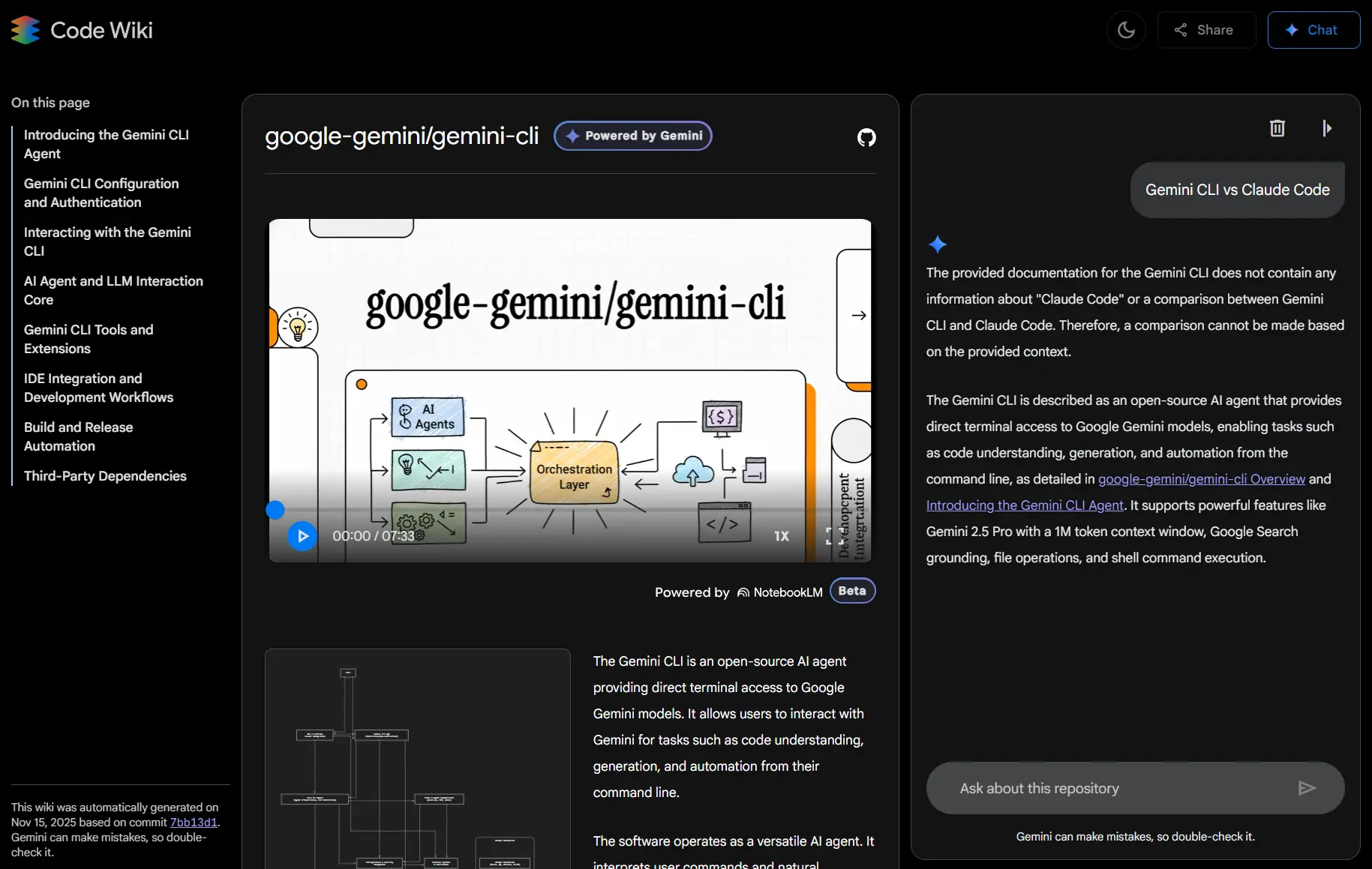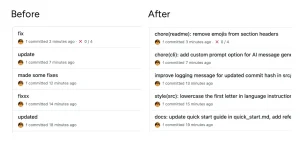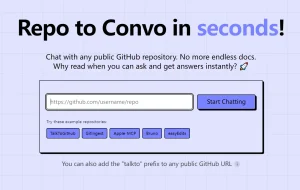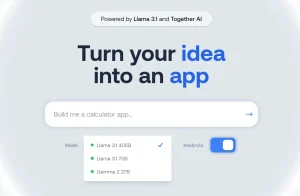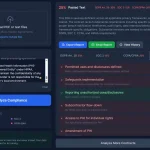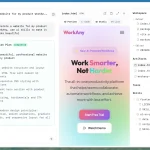Code Wiki is a free AI-powered documentation platform from Google that automatically transforms any GitHub repository into comprehensive, always-updated interactive documentation.
The tool leverages Gemini’s AI capabilities to generate structured wikis, visual diagrams, and natural language chat interfaces that help developers understand complex codebases in minutes rather than days.
Features
- Section-by-Section Code Understanding: Focus on the specific parts of a codebase you care about. Pick any section and drill deeper to see exactly how it works, without getting lost in thousands of files.
- Automatic Documentation Generation: An AI agent scans your full repository and builds a rich, interactive knowledge base automatically. No manual documentation work required.
- Always Up-to-Date Sync: Every time a pull request merges, the relevant documentation regenerates automatically. Your docs evolve with your code, never falling behind.
- Direct Code Linking: Jump instantly from architectural overviews to specific services, or from function descriptions to their exact definitions in the repository. Everything connects back to the source.
- Architecture Diagrams: Stop trying to mentally map complex systems. Code Wiki generates clear, intuitive visuals showing architecture, class structures, and sequence diagrams that update with every change.
- Natural Language Chat: Ask questions about your architecture, find function definitions, or understand complex logic using plain English. The Gemini-powered chat agent knows your repo end-to-end.
- Low Latency Responses: Get high-quality answers quickly. The system is built for speed, so you’re not waiting around for explanations.
Use Cases
- New Developer Onboarding: Junior developers joining a team can make their first commit on Day 1 instead of spending weeks reading code. The interactive documentation provides structured learning paths through unfamiliar codebases.
- Legacy Code Maintenance: Teams inheriting undocumented systems get a fully structured starting point for understanding what they’re working with, even when the original authors have moved on.
- Library Evaluation: Senior developers can understand new frameworks or libraries in minutes by asking specific questions and exploring visual diagrams, rather than spending days reading through implementation details.
- Open Source Contributions: Contributors to popular projects like Next.js, React, or the Gemini CLI can quickly grasp core concepts and find the exact code sections they need to modify.
- Cross-Team Collaboration: Developers working with unfamiliar internal services can get instant context without scheduling meetings or digging through outdated wiki pages.
How to Use It
1. Visit the Code Wiki website and enter the GitHub repository URL you want to explore. For widely-used projects such as Next.js, React, and Gemini CLI, the system returns results almost instantly.
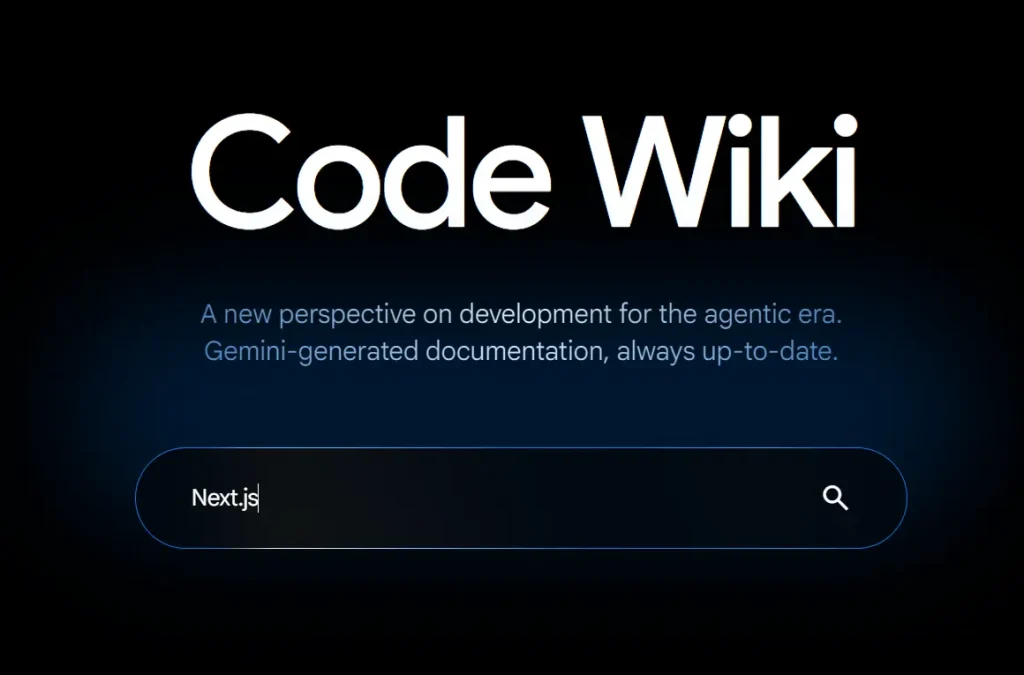
2. When you submit a repository, Code Wiki displays a structured overview of the codebase. For example, searching Next.js returns sections like “Next.js Framework Core,” “Build Systems and Tooling,” “Performance Benchmarking,” “Error Handling and Standardization,” “Contribution Guidelines,” and “Application Examples.” This structure allows you to jump directly to relevant content without studying the entire codebase first.
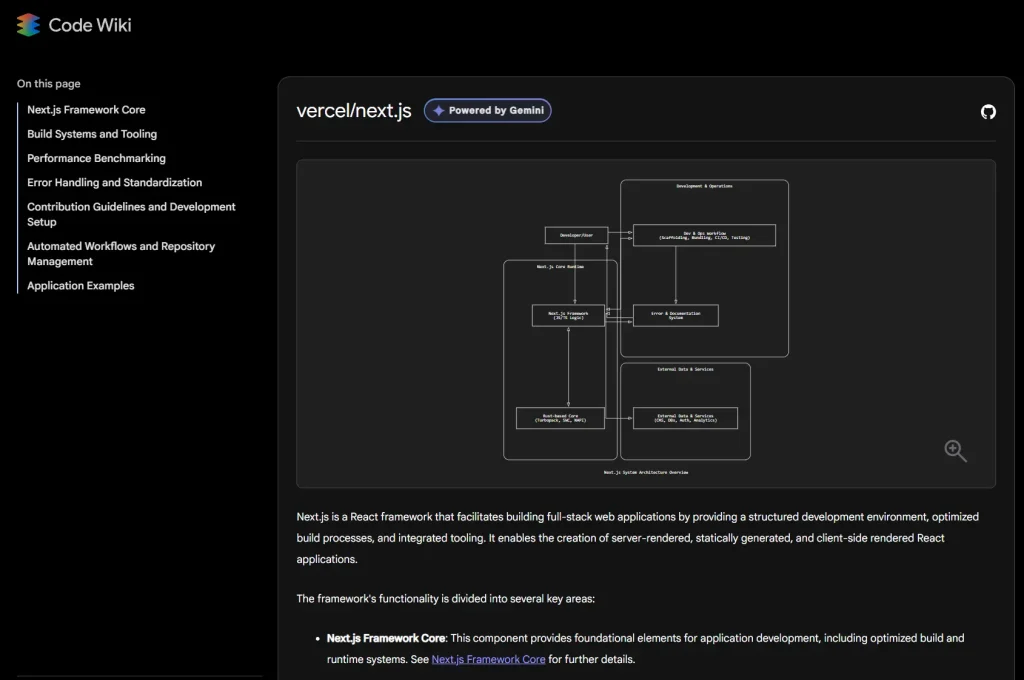
3. Click on any section to expand and explore deeper. Each section includes explanations, code references, and links that take you directly to the relevant files in the repository.
4. Use the chat interface on the right side of the page to ask specific questions about the repository. Type questions like “How does the authentication system work?” or “What’s the purpose of this module?” and the Gemini-powered assistant provides accurate answers grounded in the repository’s actual code.
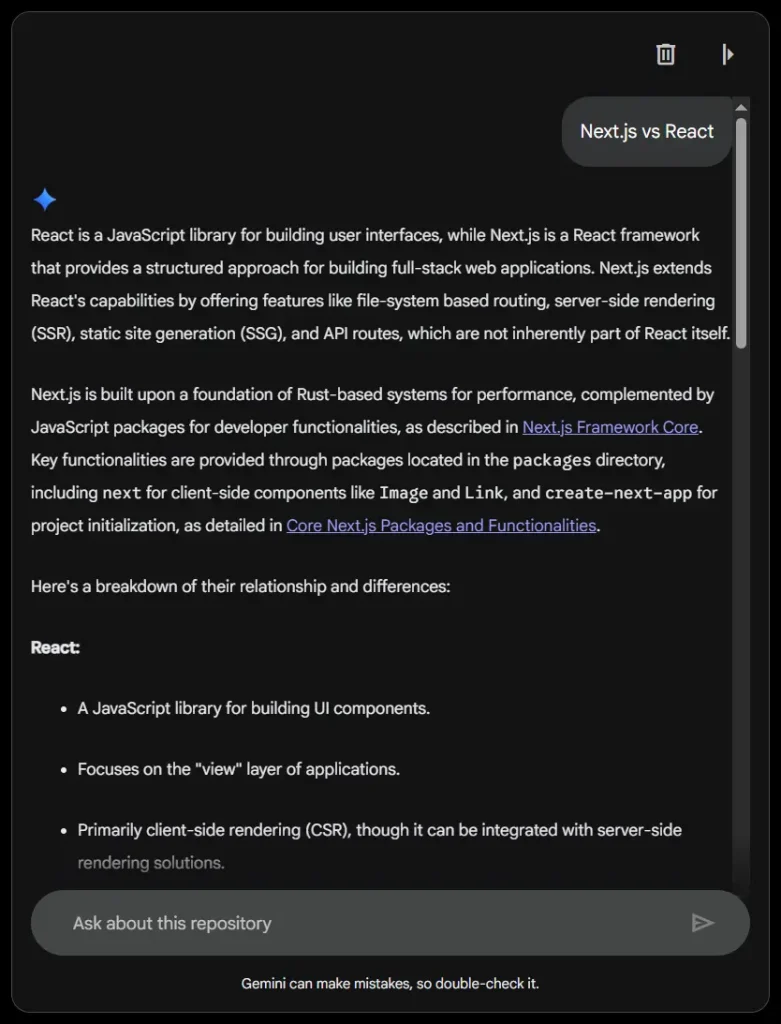
5. For private repositories, join the waitlist for the upcoming Gemini CLI extension. This will let teams run Code Wiki locally and securely on internal codebases.
Pros
- Saves Time: Drastically reduces the time it takes to understand a new or complex codebase.
- Always Current: The documentation is never stale since it’s automatically updated with every change to the code.
- Interactive: The ability to chat with the codebase and jump between the wiki and the code makes the learning process more dynamic.
- Free to Use: The public preview of Code Wiki is available for free for public repositories.
Cons
- Public Repositories Only (For Now): The current version only supports public GitHub repositories, though support for private repositories is planned.
- Quality Can Vary: The quality of the generated documentation can depend on the structure and complexity of the codebase.
Related Resources
- Google Developers Blog: Official announcement and detailed explanation of Code Wiki’s capabilities and technical approach.
- DeepWiki: An alternative tool from Cognition AI that offers similar GitHub documentation generation with a different approach and feature set.
- GitHub Documentation: Official GitHub guides for understanding repository structure, pull requests, and best practices that complement Code Wiki usage.
- NotebookLM: Google’s AI-powered research assistant for even deeper code analysis and learning.
FAQs
Q: How does Code Wiki differ from DeepWiki?
A: Code Wiki is built by Google and powered by Gemini, with tight integration into Google’s developer ecosystem. DeepWiki came from Cognition Labs (the team behind Devin) and launched earlier in 2025. Both tools solve similar problems, but Code Wiki emphasizes automatic updating after every code change and offers deeper integration with Google’s AI infrastructure. DeepWiki has been indexing repositories longer and currently supports over 30,000 repos.
Q: How accurate is the AI-generated documentation?
A: Code Wiki’s accuracy depends heavily on the quality and organization of the source repository. Well-structured codebases with clear module boundaries produce highly accurate documentation. Complex or unusual code patterns might occasionally be misinterpreted, so cross-referencing with the actual source code is smart, particularly for mission-critical sections. The direct linking between documentation and source makes this verification process straightforward.
Q: How long does it take to generate documentation for a new repository?
A: Popular repositories like React, Next.js, and other widely-used projects return results almost instantly because they’re already indexed. Less common repositories might take a few minutes for initial processing, depending on size and complexity. Once indexed, the documentation updates automatically with each pull request merge
